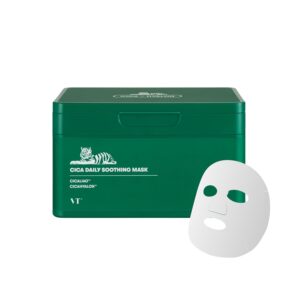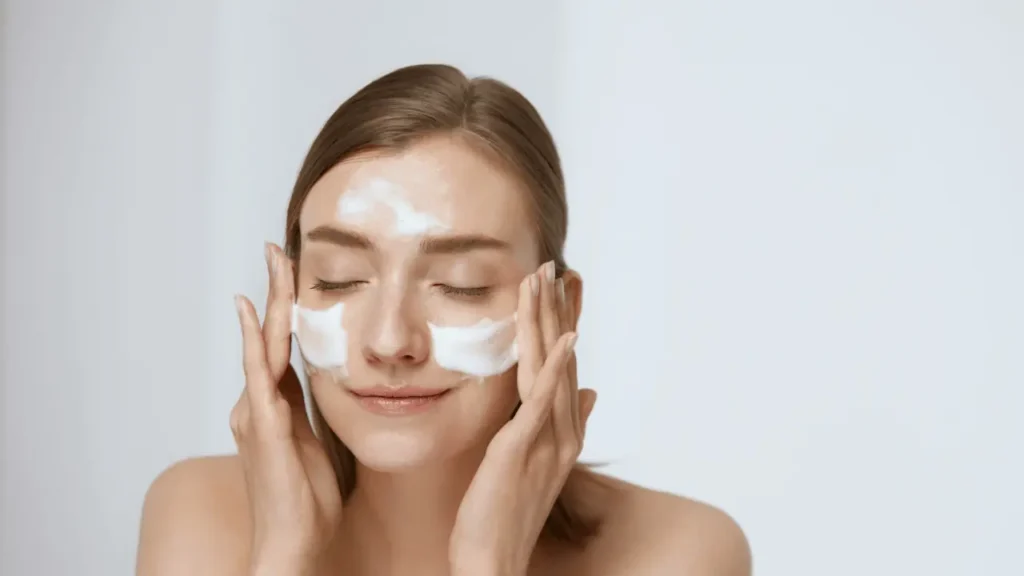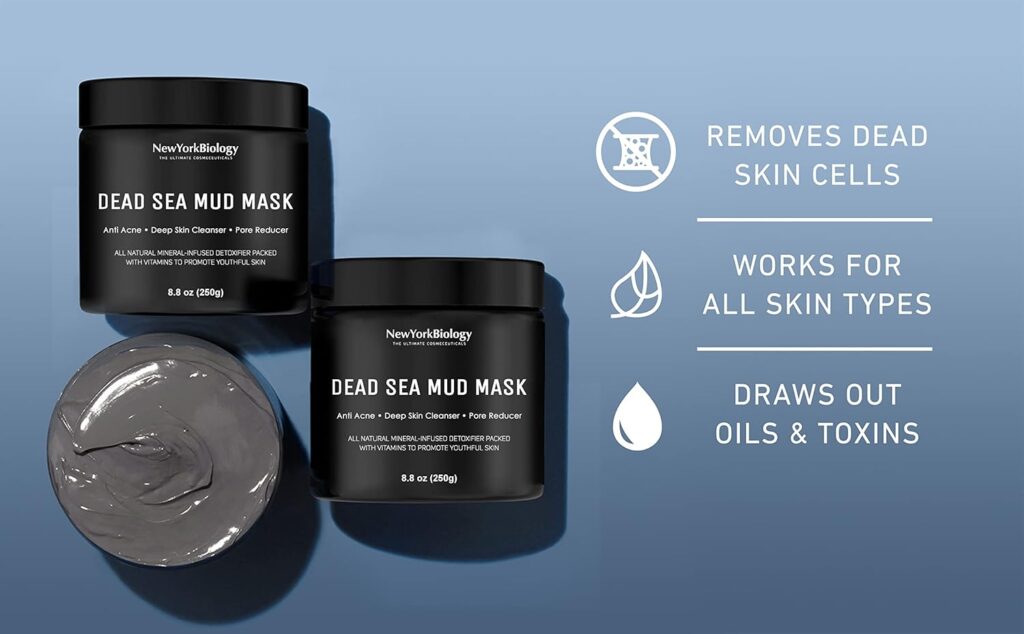Introduction
Face sheet masks have revolutionized the skincare industry, offering a convenient and effective way to pamper your skin at home. These thin, sheet-like masks are soaked in potent serums and essences, designed to deliver a concentrated dose of nutrients directly to your skin. Face sheet masks have become increasingly popular due to their ease of use and visible results.

In this comprehensive guide, we’ll explore everything you need to know about face sheet masks, from their various benefits to the different types available on the market. Whether you’re a skincare novice or a beauty enthusiast, this guide will help you navigate the world of sheet masks and incorporate them effectively into your skincare routine.
What Are Face Sheet Masks?
Face sheet masks are single-use skincare products that consist of a thin, fabric-like material saturated with a concentrated serum or essence. These masks are designed to fit the contours of your face, allowing for maximum contact between the skin and the nourishing ingredients.
Common Materials Used in Sheet Masks:
- Cotton: A popular choice for its softness and ability to hold moisture.
- Hydrogel: A cooling, jelly-like material that adheres closely to the skin.
- Biocellulose: A natural, biodegradable material known for its excellent adhesion and ability to retain moisture.
- Tencel: A sustainable, eco-friendly option made from wood cellulose.
Face sheet masks differ from other types of masks in several ways:
- Application: Unlike clay or cream masks, sheet masks require no messy application or rinsing off.
- Occlusion: The sheet creates a barrier that prevents the evaporation of the serum, allowing for better absorption.
- Targeted Treatment: The pre-cut shape ensures an even distribution of ingredients across the face.
Sheet masks offer a unique combination of convenience and effectiveness, making them a popular choice for those looking to enhance their skincare routine with minimal effort. In the following sections, we’ll delve deeper into the benefits, types, and application techniques of face sheet masks to help you make the most of these skincare wonders.
You May Also Like:- The Ultimate Guide to Face Masks
Benefits of Using Face Sheet Masks
Face sheet masks offer a wide range of benefits for your skin, making them a valuable addition to any skincare routine. Let’s explore the key advantages of incorporating sheet masks into your regimen:
1. Hydration
One of the primary benefits of face sheet masks is their ability to provide intense hydration to the skin. The occlusive nature of the sheet creates a barrier that prevents the evaporation of the serum, allowing your skin to absorb maximum moisture. This makes sheet masks particularly effective for:
- Combating dry, flaky skin
- Plumping up fine lines and wrinkles
- Improving overall skin texture and smoothness
Many sheet masks contain hydrating ingredients like hyaluronic acid, glycerin, and aloe vera, which help to lock in moisture and leave your skin feeling supple and refreshed.
2. Soothing
Face sheet masks can be incredibly soothing, especially for sensitive or irritated skin. Many formulations include calming ingredients such as:
- Chamomile
- Aloe vera
- Centella asiatica (also known as cica)
- Green tea extract
These ingredients help to reduce redness, inflammation, and skin sensitivity. The cooling effect of the mask itself can also provide relief for sunburned or stressed skin.
3. Brightening
Brightening sheet masks can be a game-changer for those looking to achieve a more radiant complexion. These masks often contain ingredients like:
- Vitamin C
- Niacinamide
- Licorice root extract
- Pearl extract
These active ingredients work to even out skin tone, fade dark spots, and impart a healthy glow to the skin. Regular use of brightening sheet masks can lead to a more luminous and youthful-looking complexion.
4. Convenience
One of the most appealing aspects of sheet masks is their convenience. Unlike traditional masks that require application and rinsing, sheet masks offer a mess-free experience:
- Easy to apply: Simply unfold and place on your face
- No need to rinse: Just remove and pat in any remaining serum
- Perfect for travel: Individually packaged for on-the-go use
- Multi-tasking friendly: Wear while relaxing, reading, or watching TV
The ease of use makes it more likely for people to consistently incorporate masks into their skincare routine, leading to better long-term results.
5. Targeted Treatment
Sheet masks come in a variety of formulations designed to address specific skin concerns. Whether you’re dealing with acne, aging, or dullness, there’s likely a sheet mask tailored to your needs. This targeted approach allows for more effective treatment of individual skin issues.
6. Relaxation and Self-Care
Beyond the physical benefits, using a face sheet mask can be a relaxing and enjoyable experience. Taking 15-20 minutes to apply a mask and unwind can be a form of self-care, helping to reduce stress and promote overall well-being.
By understanding these benefits, you can choose the right face sheet masks to complement your skincare goals and enjoy immediate and long-term improvements in your skin’s health and appearance.
Types of Face Masks
The world of face masks is diverse, offering a variety of options to suit different skin types and concerns. Let’s explore some popular types of face masks, including the specific subtopics you requested:
1. Charcoal Face Mask
Charcoal face masks have gained immense popularity for their detoxifying properties. These masks are particularly beneficial for:
- Oily and acne-prone skin
- Deep cleansing and pore unclogging
- Removing excess sebum and impurities
Activated charcoal acts like a magnet, drawing out toxins, dirt, and oil from deep within the pores. This makes charcoal masks an excellent choice for those looking to purify their skin and achieve a clearer complexion.
Know More:- The Benefits of Charcoal Face Masks for Your Skin
2. Everyuth Mask Pouch
Everyuth mask pouches are a unique offering in the face mask market. These convenient pouches contain the following:
- Pre-measured amounts of mask formulation
- Natural ingredients tailored for specific skin concerns
- Easy-to-use packaging for on-the-go skincare
Everyuth masks are known for their affordability and effectiveness, making them a popular choice for those new to face masking or looking for a budget-friendly option.
3. Black Face Mask
Black face masks, often made with ingredients like charcoal or black clay, are designed to:
- Deeply cleanse and detoxify the skin
- Reduce the appearance of pores
- Control excess oil production
These masks have gained popularity not only for their effectiveness but also for their striking appearance, making them a favorite for social media-worthy skincare routines.
4. Gel Face Mask
Gel face masks offer a cooling and soothing experience, perfect for:
- Sensitive or irritated skin
- Hydration and calming effects
- Reducing puffiness and inflammation
The gel texture allows for better adherence to the skin and often provides an instant cooling sensation upon application. These masks are particularly refreshing when stored in the refrigerator before use.
Know More:- 5 Best Gel Face Masks Can Refreshen Your Skin
5. Korean Face Mask
Korean face masks, a staple in K-beauty routines, are known for their:
- Innovative formulations and ingredients
- Focus on hydration and brightening
- Variety of options for different skin concerns
Korean masks often incorporate unique ingredients like snail mucin, ginseng, or fermented ingredients, offering cutting-edge skin care solutions inspired by Korean beauty traditions.
6. Peel Off Mask
Peel-off masks offer a satisfying and effective way to exfoliate and cleanse the skin. These masks:
- Dry to form a film that can be peeled away
- Remove dead skin cells and impurities
- Can help with blackhead removal
While they differ from sheet masks in application and removal, peel-off masks can be a fun and effective addition to a skincare routine, especially for those looking for a more intensive treatment.
Additional Types of Face Masks:
- Clay Masks: Great for oily skin, these masks absorb excess oil and draw out impurities.
- Cream Masks: Ideal for dry skin, providing intense hydration and nourishment.
- Bubble Masks: These masks foam up on the skin, helping to cleanse and oxygenate.
- Sleep Masks: Designed to be worn overnight, these masks provide intense hydration and repair.
Each type of face mask offers unique benefits, and many skincare enthusiasts enjoy incorporating a variety of masks into their routines to address different skin concerns. By understanding the properties of each mask type, you can choose the best options for your specific skin needs and preferences.
How to Choose the Right Face Mask for Your Skin Type
Selecting the perfect face mask for your skin can significantly enhance your skincare routine. The key is to understand your skin type and specific concerns. Let’s break down the guidelines for choosing masks based on different skin types:
For Oily Skin:
If you have oily skin, look for masks that help control excess sebum and unclog pores:
- Charcoal masks: These are excellent for absorbing excess oil and purifying the skin.
- Clay masks: Kaolin or bentonite clay can help draw out impurities and reduce shine.
- Black masks: Often containing charcoal or clay, these can be effective for deep cleansing.
Recommended ingredients: Salicylic acid, tea tree oil, niacinamide
For Dry Skin:
Those with dry skin should prioritize hydration and nourishment:
- Gel masks: These provide intense hydration and have a soothing effect.
- Cream-based sheet masks: Look for masks infused with moisturizing serums.
- Overnight masks: These can provide long-lasting hydration.
Recommended ingredients: Hyaluronic acid, glycerin, ceramides, aloe vera
For Combination Skin:
Combination skin requires a balanced approach:
- Multi-masking: Use different masks on different areas of your face.
- Balancing masks: Look for masks that hydrate without adding excess oil.
- Korean face masks: Many are formulated to address multiple concerns simultaneously.
Recommended ingredients: Green tea, vitamin E, jojoba oil
For Sensitive Skin:
Sensitive skin needs gentle, soothing masks:
- Gel masks: These are often cooling and less likely to irritate.
- Fragrance-free masks: Avoid potential irritants.
- Calming sheet masks: Look for masks with soothing ingredients.
Recommended ingredients: Chamomile, aloe vera, centella asiatica, oatmeal
For Acne-Prone Skin:
If you’re dealing with acne, look for masks that can help clear and prevent breakouts:
- Charcoal or clay masks: These can help absorb excess oil and unclog pores.
- Tea tree masks: Tea tree oil has natural antibacterial properties.
- Salicylic acid masks: This ingredient can help exfoliate and clear pores.
Recommended ingredients: Salicylic acid, benzoyl peroxide, sulfur
For Aging Skin:
To address signs of aging, look for masks with anti-aging ingredients:
- Hydrating sheet masks: These can plump up fine lines and wrinkles.
- Antioxidant-rich masks: Help protect against free radical damage.
- Firming masks: Look for ingredients that boost collagen production.
Recommended ingredients: Retinol, peptides, vitamin C, coenzyme Q10
General Tips for Choosing Face Masks:
- Read the ingredients: Always check the ingredient list to ensure it doesn’t contain anything you’re allergic to or that has caused reactions in the past.
- Consider your skin concerns: Beyond your skin type, think about specific issues you want to address, such as hyperpigmentation, redness, or fine lines.
- Start with patch testing: When trying a new mask, especially if you have sensitive skin, do a patch test on a small area first.
- Seasonal adjustments: Your skin’s needs may change with the seasons, so be prepared to switch up your mask choices accordingly.
- Combination approaches: Don’t be afraid to use different masks for different occasions or to address various concerns.
By considering your skin type and specific concerns, you can choose face masks that will be most effective for your individual needs. Remember, what works for someone else may not work for you, so don’t be discouraged if you need to try a few options before finding your perfect match.
DIY Face Sheet Masks
Creating your own face sheet masks at home can be a fun and cost-effective way to pamper your skin. Here’s a guide to making DIY face sheet masks:
Benefits of DIY Masks:
- Control over ingredients
- Cost-effective
- Customizable to your skin’s needs
- Fresh and preservative-free
Simple DIY Recipes:
- Hydrating Honey Mask
- Mix 1 tablespoon honey with 1 teaspoon aloe vera gel
- Soak a clean cotton sheet in the mixture
- Apply to face for 15-20 minutes
- Soothing Oatmeal Mask
- Blend 1/4 cup cooked oatmeal with 2 tablespoons yogurt
- Spread on a clean cotton cloth
- Apply to face for 10-15 minutes
- Brightening Turmeric Mask
- Mix 1 teaspoon turmeric powder with 2 tablespoons plain yogurt
- Soak a clean cloth in the mixture
- Apply for 10 minutes (be cautious, as turmeric can stain)
Remember to patch-test any new ingredients before applying them to your entire face.
Application Tips and Tricks
Proper application is key to maximizing the benefits of your face sheet mask:
- Cleanse your face thoroughly before applying the mask.
- Unfold the mask carefully to avoid tearing.
- Align the mask with your eyes, nose, and mouth.
- Smooth out any air bubbles for better adherence.
- Leave on for the recommended time, usually 15-20 minutes.
- Remove gently and pat the remaining serum into your skin.
- Follow up with your regular skincare routine.
Pro Tips:
- Store sheet masks in the refrigerator for an extra cooling effect.
- Use a jade roller over the mask to enhance product absorption.
- Please don’t leave the mask on for too long, as it can start to dry out your skin.
Frequently Asked Questions (FAQs)
Q: How often should I use a sheet mask? A: It depends on your skin type, but generally 1-3 times a week is sufficient.
Q: Can I reuse a sheet mask? A: No, sheet masks are designed for single use to maintain hygiene and effectiveness.
Q: Are sheet masks suitable for all skin types? A: Yes, there are sheet masks formulated for every skin type. Choose one that matches your skin’s needs.
Q: Can I use a sheet mask if I have acne? A: Yes, but look for non-comedogenic options and those specifically designed for acne-prone skin.
Q: Should I wash my face after using a sheet mask? A: Generally, no. Pat in any remaining serum for maximum benefits.
Conclusion
Face sheet masks have revolutionized at-home skincare, offering a convenient and effective way to address various skin concerns. From hydrating dry skin to soothing sensitive complexions, there’s a mask for every need. By understanding the different types of masks available, choosing the right one for your skin type, and applying it correctly, you can significantly enhance your skincare routine.
Remember, consistency is key in skincare. While sheet masks can provide an instant boost, incorporating them regularly into your routine will yield the best long-term results. Whether you opt for store-bought masks or try your hand at DIY versions, face sheet masks are an excellent way to give your skin some extra TLC.
We encourage you to experiment with different types of masks to find what works best for your skin. Don’t be afraid to mix and match or use different masks for different areas of your face. Skincare should be both effective and enjoyable, and face sheet masks offer a perfect blend of both.
Share your experiences with face sheet masks in the comments below, or reach out with any questions you may have. Here’s to healthy, glowing skin!











Pingback: The Benefits of Charcoal Face Masks for Your Skin - Productsforme
Pingback: 5 Best Gel Face Masks can Refreshen Your Skin - Productsforme
Pingback: Best Types of Facial Cleansers and Their Benefits for Different Skin Types - Productsforme